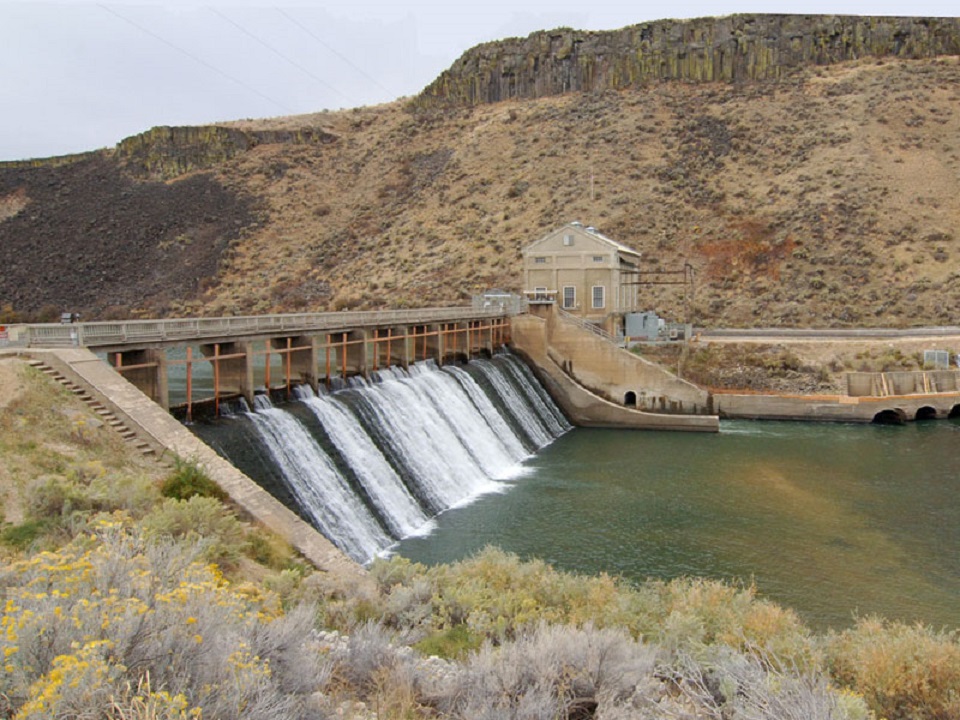Imagine you paid off your home mortgage, but before you can receive clear title to the home, your bank must first approve the title transfer with the U.S. Congress. Since you don’t own the home, every improvement, short-term rental, or possible alteration has to receive federal approval. There are many ways you could improve the home, but bureaucratic red tape gets in the way.
That’s exactly what it’s like for many irrigation projects in the West that are owned by the Bureau of Reclamation. The federal bureau owns water projects, canals, and other water-related infrastructure in 17 western states that irrigate more than 11 million acres. After the bureau built the projects in the early 20th century, the plan was to eventually transfer control to the local water users once the projects were paid off. Each transfer, however, requires an act of Congress, and the process of securing such approvals has proven long and cumbersome.
The House of Representatives recently passed legislation that would streamline title transfers of Reclamation projects to state or local entities that have repaid the federal government for the full costs of the projects. The legislation, introduced by Colorado Republican Rep. Doug Lamborn, would allow those who benefit from Reclamation projects to be directly responsible for the management of the irrigation projects and for future maintenance and improvements.
Congress created the Bureau of Reclamation in 1902 as a national effort to “make the desert bloom.” Today, the agency owns 492 dams and 338 reservoirs, with the vast majority of all Reclamation water going to agriculture. Although the era of big dam building in the United States is over, irrigation from Reclamation projects remains an important part of agriculture in the western United States.
Under the original 1902 legislation, once the capital costs of an irrigation project were repaid to the federal government, ownership was supposed to revert to the water users. The transfer process is long and complicated, however, and each transfer must be approved by Congress. Since 1996, Congress has approved just 30 such title transfers.
The proposed legislation is designed to make title transfer much more straightforward and rapid. If enacted, the bill would create a voluntary process for local utilities, states, or tribes to pursue title transfers to Reclamation projects and would allow the Secretary of the Interior to grant title transfer without Congressional approval. Similar legislation has been introduced in the Senate.
Conveying ownership to the actual users of Reclamation water is eminently sensible. The individuals and groups who benefit from a government project have specific information about present and future use of irrigation water that can lead to better management. Irrigation facilities require ongoing upkeep—such as refurbishing dams, repairing canals, and replacing pumping facilities—and the Bureau of Reclamation has a large maintenance backlog that slows much-needed repairs. Local irrigation groups could sell bonds to finance improvements, but lack of ownership prevents them from using irrigation facilities as collateral.
Other management decisions are impeded when ultimate responsibility is retained at the federal level. For instance, simply siting a transmission line across a Reclamation-owned irrigation project can come with mountains of red tape. Federal decision making requires numerous steps and work by agency employees. Approvals are often slow, not because of ill will on the part of Reclamation, but simply because of the paperwork and approval processes that are needed and the numerous federal regulations that must be met.
Finally, the move to local control could lead to water reallocation that would benefit all parties. Water used in agriculture often has a much lower value than water used by municipalities. For example, most federal irrigation water generates $50 to $500 an acre-foot of value in agriculture but would be worth $5,000 to $10,000 an acre-foot in municipal use. If farmers had a clear ownership claim, they could decide whether some water should be sold to another party—a transaction that would benefit both buyer and seller.
Transferring title to these water projects is long overdue. It’s time for Congress to approve the legislation and give western irrigators effective operating control of the water they use.
This article originally appeared in the Billings Gazette.




